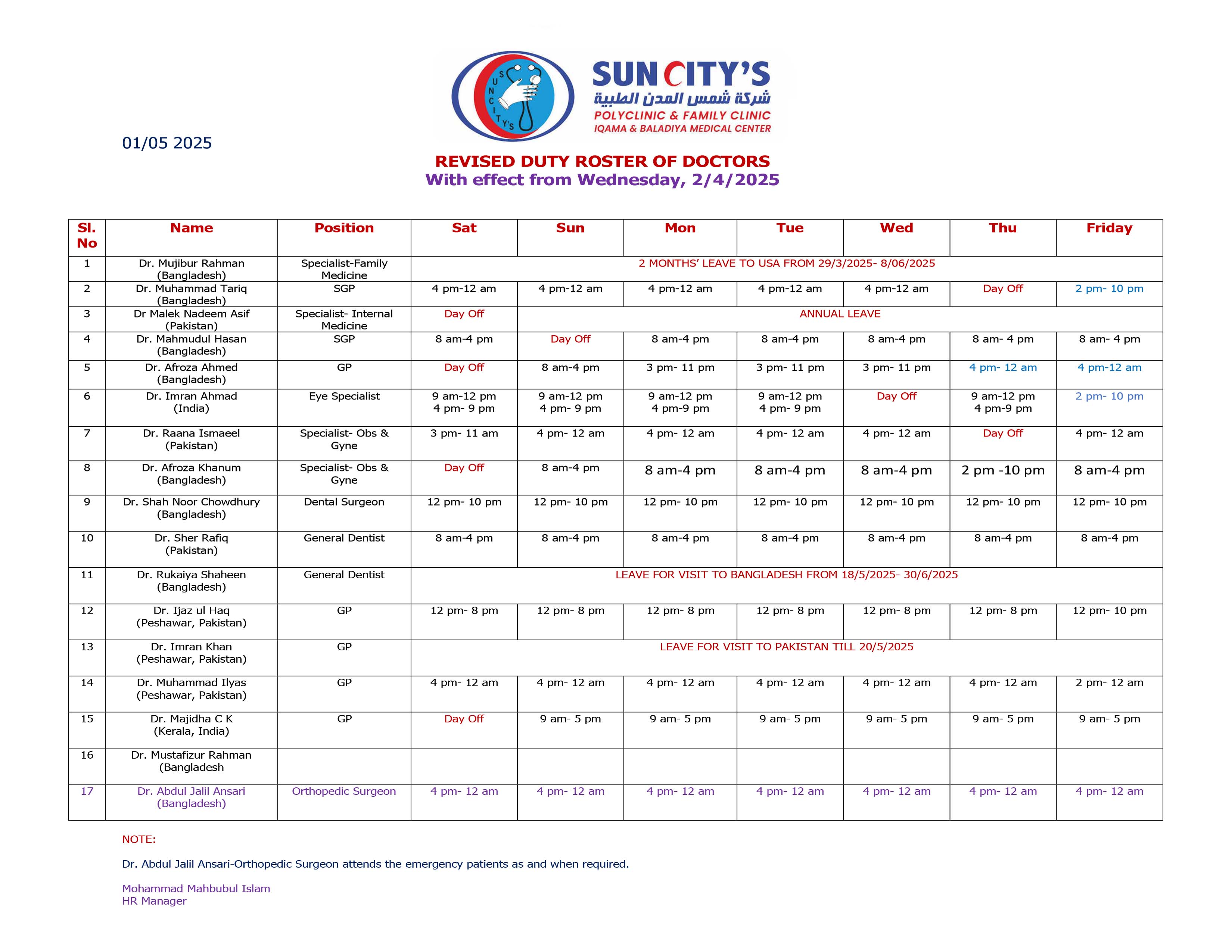Duty Roster of Doctors

Key Areas of Laboratory Medicine: Clinical Chemistry: Testing blood, urine, and other fluids for biomarkers like glucose, cholesterol, and electrolytes. Enzyme, hormone, and protein level assessments. Hematology: Analysis of blood components, such as red and white blood cells and platelets. Screening for anemia, clotting disorders, and blood cancers. Microbiology: Identification of bacterial, viral, fungal, and parasitic infections. Antibiotic susceptibility testing. Immunology and Serology: Testing for immune responses, autoimmune diseases, and infections (e.g., HIV, hepatitis). Allergy testing and antigen-antibody reactions. Molecular Diagnostics: Detection of genetic mutations and infectious agents through DNA/RNA analysis. Techniques like PCR (Polymerase Chain Reaction). Pathology: Examination of tissue and cellular samples for cancer, infections, and other abnormalities. Blood Banking and Transfusion Medicine: Blood typing, crossmatching, and managing blood supply for transfusions. Toxicology: Screening for drugs, alcohol, and poisons in the body. Role of the Laboratory in Healthcare: Diagnosis: Providing data to identify diseases or conditions. Monitoring: Tracking disease progression and treatment effectiveness. Screening: Early detection of diseases, such as cancer or metabolic disorders. Research: Advancing understanding of diseases and developing new therapies. Common Tests Performed: Complete Blood Count (CBC). Basic Metabolic Panel (BMP). Liver and kidney function tests. Culture and sensitivity tests. Coagulation profiles (e.g., PT/INR, aPTT)
"Suncity Polyclinic: Confidence in healthcare in Riyadh, where patients receive dedicated care."